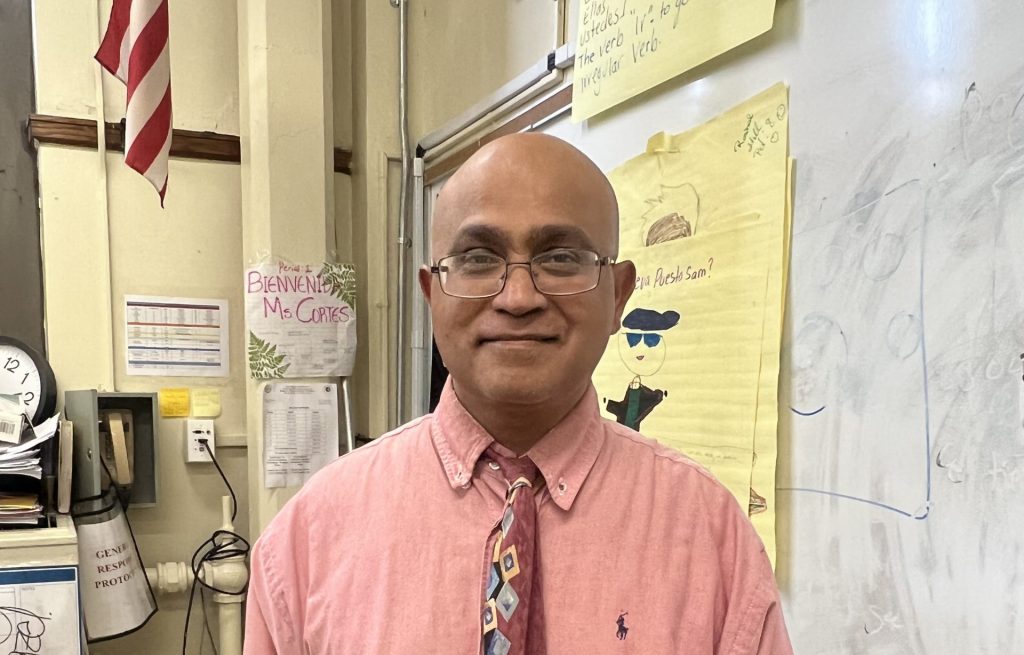History is very important to a people or nation. That is why it is studied as a subject from kindergarten thru high school (mandatory for all HS students) and is a major for degrees at colleges or universities. History is the study of happening of the past. The past creates the present. History is knowledge of the past of a people or community. Historians say the past creates the present. Today’s world world exists because of events in the past. Only by understanding past events can we know our present situation — how a people get here and where the go next. Only by understanding the past, can people know where Guyana is heading.
Also, past actions directly affect how we live our lives today. Studying history (historical events and or issues) helps the present generation to understand how events in the past made things the way they are today. The present generation not only learn about themselves and how they came to be the people they are and why they are in Guyana or elsewhere when they study or known, but they also use the lessons of the past to develop ability to avoid mistakes and to create a better future for themselves and the society at large. The young may not want to get into history but as they get older, they start to see the importance of understanding the past.
The study or writing of ‘Indian history’ is being threatened in Guyana. I use the term “end of history” (of Indians), borrowing the term from the essay or book of the Japanese American political philosopher Frances Fukuyama who titled it “End of History”, a best seller published in 1989. He was writing about the end of the ideological battle between East and West (Communism versus Liberalism); liberalism won with the collapse of the Soviet Union in 1990.
My “end of history” title refers to the fact that very few (Indians and others) are studying or writing on Indian history and the indisputable case that resources are not being given to researchers or scholars by the government or private foundations to study Indian history. Even Indian scholars, apart from Dr. Baytoram Ramharack and myself, are not researching and writing about Indian Guyanese and Indian happenings. Indian history and philosophy are marginalized (or not even included) in social science books on Guyana. Ditto Indian history and philosophy and the Indian presence in the region in the history curriculum for a degree at University of Guyana and at UWI. The neglect and marginalization of Indian presence does not bother or trouble community leaders or politicians of Indian descent even when they occupy the corridors of power. Appeal for resources and materials (documents) to write about Indians have fallen on deaf ears. Monies are allocated to other groups to document and preserve their history. Indians get no such focus or resources to write or document or preserve their history. Indian community leaders and politicians do not understand the threat posed to their very survival in the neglect of or ‘end of Indian history’.
Understanding history of the Indian community is crucial for its survival. It is noted, as an illustration, that the Indian population in Guyana has been rapidly declining. From a high of some 55% in the late 1970s, it has fallen to less than 40% today. At this rate the community is gradually disappearing in numbers and percentage, and it won’t be much longer before Indians become an insignificant minority. A study is needed to understand this problem and how to address it. Politicians seem uninterested even when their career depend on the Indian presence.
Indian community leaders and politicians need to understand that events in the past impact the existence of a group. Happenings of the past displaced families or a group of people, changing the demographic makeup of a geographic area or a society with devastating consequences and lasting impact. The events of the past affect society permanently including the present. Take one example! Burnham banned the essential foods that make up the cultural diet of Indians and oppressed Indians. This began to affect the health and cultural habits and religious persuasions of Indians and their ultimate migration. The food ban was reversed by Burnham’s successor. But migration has continued.
The policy of Burnham and Hoyte and succeeding leaders impacted on Indians. The more one knows about policies and things that happened and the responses to them by the Indian community, the more the community understand life and better equipped to respond to adverse policies.
In general, knowing history of events or happenings is very important for the survival of a group – it helps us to understand why some groups or people succeed while others fail. Historical research helps us to document the presence and experience of a community. Indian history is the study of the past of that ethnic group. It explains how the group came to Guyana, why they live where they do, and why they live that way. It’s the study of the place of Indians in an ever-changing Guyana. Without Indian history, the community and the country wouldn’t understand its settlement in Guyana, how and why came to Guyana, their adversities and how they overcame them, their culture, their triumphs and failures. Without knowing their history, they won’t be able to make adequate preparation to avoid past mistakes to build a bright future.
The Spanish philosopher, cum historian, George Santayana wrote, “Those who cannot remember the past are doomed to repeat it”. Indians must not repeat their history of bad experiences. They should make every effort to know about their history and lobby government to make available resources to scholars and researchers to write on Indian history so as to avoid “the end of Indian history”.
